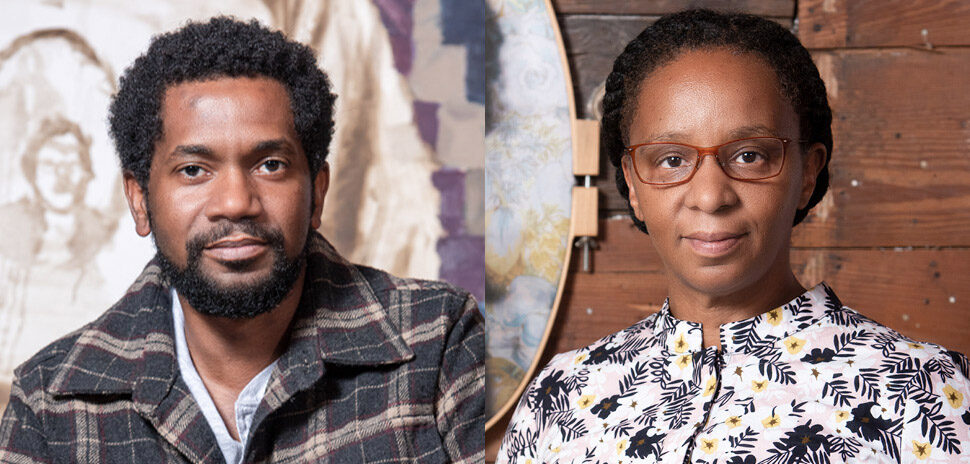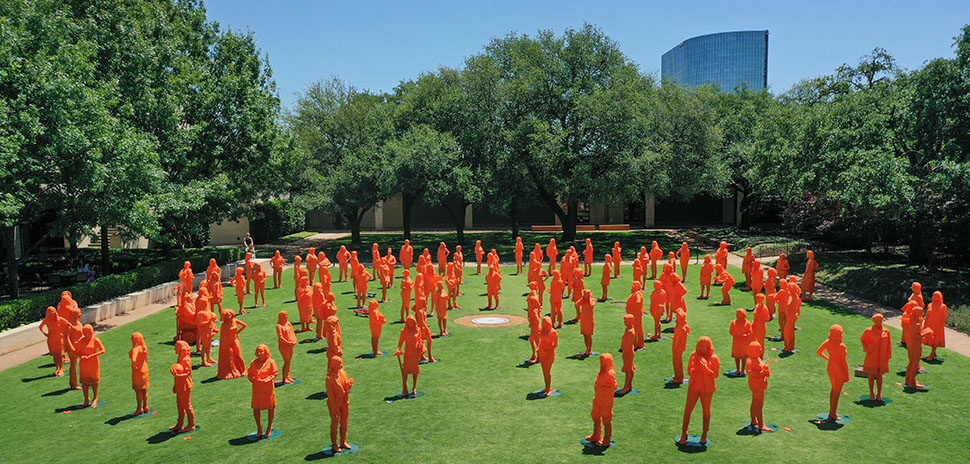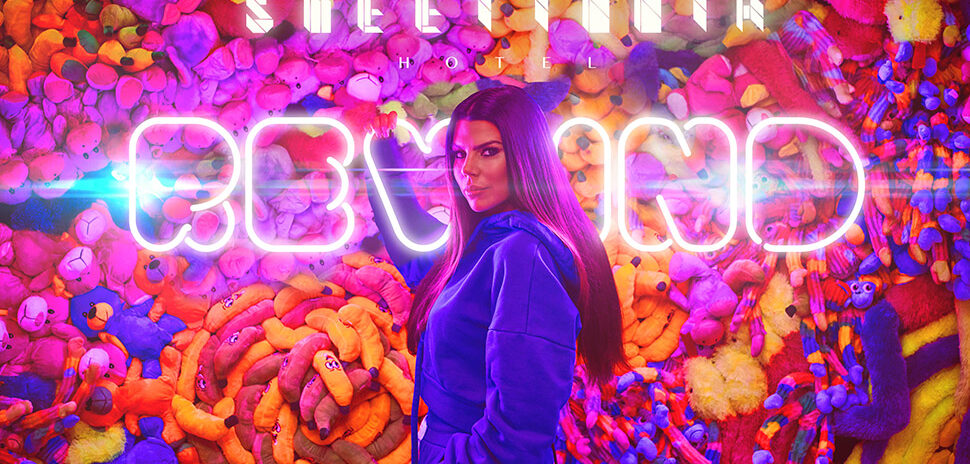AUSTRIAN ARTIST, CONSERVATIONIST THINKS ART CAN CARRY A MESSAGE
Art could be the key to combating apathy towards climate change and the effects mankind has on the plant, Austrian artist and conservationist Markus Reymann said during a recent visit to Dallas.
Artists are “magicians of communication” who have the power to create life-changing images or displays, possibly shifting the paradigm for public consciousness, Reymann said.
Just one image, one piece of art, could relay the message that mountains of scientific studies and lectures can’t.
REYMANN SAYS THE CHALLENGE IS MONUMENTAL
The challenge is monumental but critical. Barring a cataclysm such as an asteroid hitting the Earth, Reymann believes mankind is the strongest force for change, good or bad, on the planet.
“The goal is to get the brightest minds to think outside the box about the world’s biggest problems,” he said. “One can take action and one can be an agent of change and do something.”
His goal is to take artists and scientists out of the studio and science lab and into the midst of the South Pacific Ocean, where he said the effects of climate change are increasingly evident.
It’s this intersection between science and art that brought Reymann and Jeremy McKane together and, in turn, brought Reyman to Dallas. McKane, a Dallas resident, created the FOUND exhibit, an eye-opening collection of images of trash that washed up on the beach in Hawaii.
FOUND EXHIBIT WAS DISPLAYED IN DALLAS
McKane’s FOUND exhibit was displayed at the LEVEL Gallery in April.
It’s these kinds of exhibits that Reymann hopes to foster more of with TBA 21, his latest exploration project that’s visiting several islands in the South Pacific.
Reymann flew from Vienna to Dallas for Earth Day Texas 2016 where he and McKane spoke on a panel about ocean pollution. The concern is that plastic could outnumber fish in the ocean, in terms of weight, by 2050.
While visiting Dallas, Reymann said he was encouraged by the budding art scene at the LEVEL Gallery and throughout North Texas.
“Obviously, you go to Texas, in the heart of oil country, I was surprised by how many people were tuned into the topic and very interested and open to the opportunity to combine art and science,” Reymann said.
While the ocean may be out of sight and out of mind for North Texans, Reymann said the health of the ocean affects the balance of the world.
PLASTIC A PART OF THE FOOD CHAIN?
Consider that plastic degrades in the ocean and that fish may end up eating some of the plastic. That travels through the food chain to the dinner plate.
The Current encourages people to go underwater and explore the ocean for themselves.
Already, they’ve made huge scientific discoveries, such as a glowing fluorescent hawksbill sea turtle, which could have implications for neuroscience, and the hydrophone research done on coral reefs, which measure sound to detect the health a reef habitat.
Since working with McKane and Reymann on the exhibit, publicist Katherine Rose Watson has become more aware of recycling and pollution.
“We get so lazy and we don’t think about it,” Watson said. “One cup every day for 80 years really adds up per person.”
McKane’s FOUND exhibit next travels to Los Angeles.
For more information on Reymann, visit tba21.org/ocean or email [email protected].
For a daily dose of what’s new, now, and next in Dallas-Fort Worth innovation, subscribe to our Dallas Innovates e-newsletter.





























